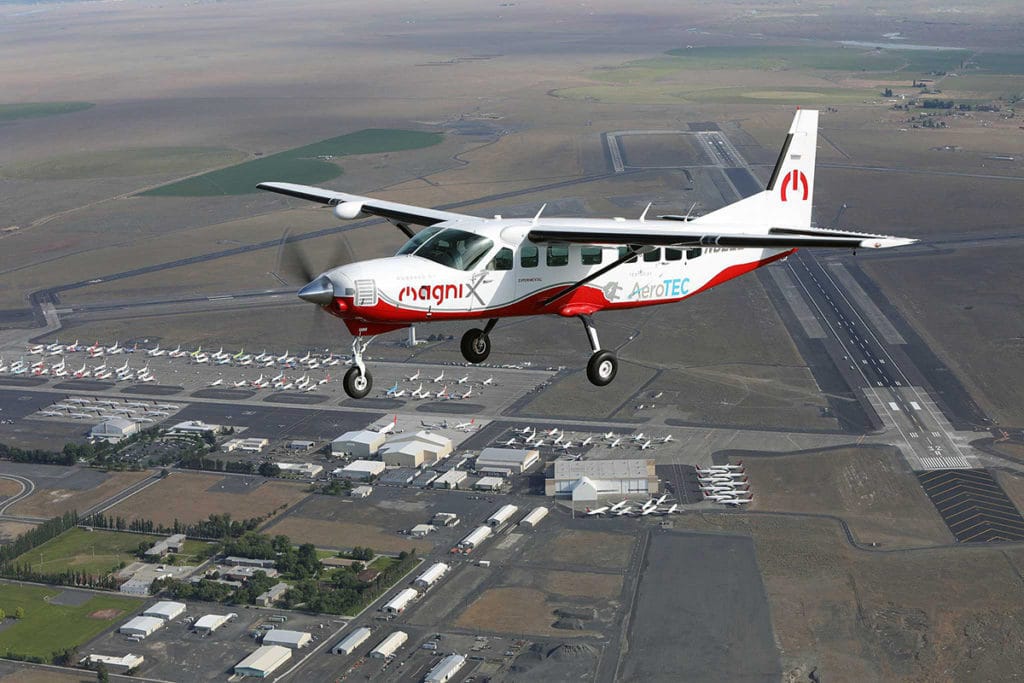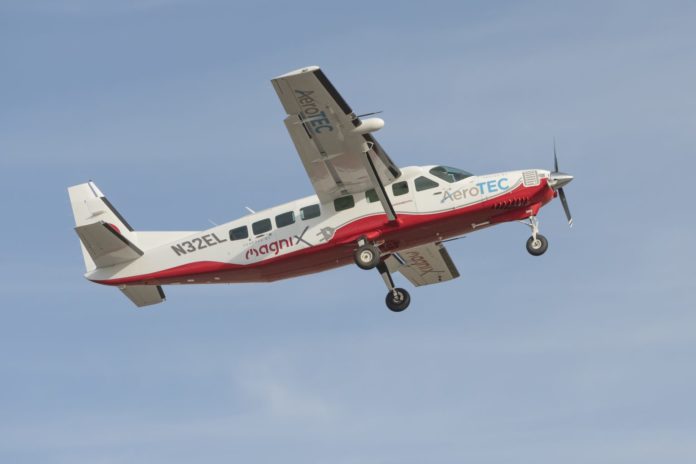The world’s largest electric commercial aircraft to date, a Cessna Grand Caravan 208B, has successfully completed its first maiden flight. Over Moses Lake in Washington state, the plane has been able to make a full 30-minute flight with zero CO2 emissions and stealthily landing at Grant County Airport.
Equipped with a 750 horsepower Magni500 electric motor, the Cessna retrofitted by MagniX took off from Moses Lake in Washington state. The plane reached the expected speed of 183 km/h (114 mph) during the 30 minutes of flight. The noise of the engine was being covered by that of the propeller – and especially of the plane that was following it to film the event.
The Redmond, Washington-based MagniX, and Seattle-based AeroTEC were in charge of the test, which focused on the performance of a Cessna 208B Grand Caravan. The AeroTEC test pilot Steve Crane took the aircraft to an altitude of 2,500 feet, and after landing, described it as a “flawless” test flight.

MagniX has replaced the 687-horsepower (505 kW) three-bladed turboprop with a fully electric, permanent magnet, Magni500 engine with power 560 kW (751 hp) capable of delivering 2,814 Nm of torque to the propeller shaft. According to MagniX, this configuration is sufficient for “half-mile aircraft” carrying between 5 and 19 passengers.
Interestingly, the other Cessna combustion engine aircraft accompanying it “is making almost twice the noise,” said Roei Ganzarski, CEO of magniX when the plane landed at Grant Lake Airport in Moses Lake.
“The iconic Caravan has been a workhorse of industry moving people and transporting goods on short routes for decades,” said Roei Ganzarski. “This first flight of the eCaravan is yet another step on the road to operating these middle-mile aircraft at a fraction of the cost, with zero emissions, from and to smaller airports. These electric commercial aircraft will enable the offering of flying services of people and packages in a way previously not possible.”
Ganzarski predicts that zero-emission aviation will require less maintenance than fuel planes that will be 50-80% cheaper to operate. That could lead to lowering the price of tickets and encouraging airlines to launch smaller planes that link routes between more neglected airports.
The flying of the eCaravan serves as another critical step to obtain FAA certification for the magni500 propulsion system. This will enable future conversions of additional aircraft to magniX’s all-electric propulsion technology.
